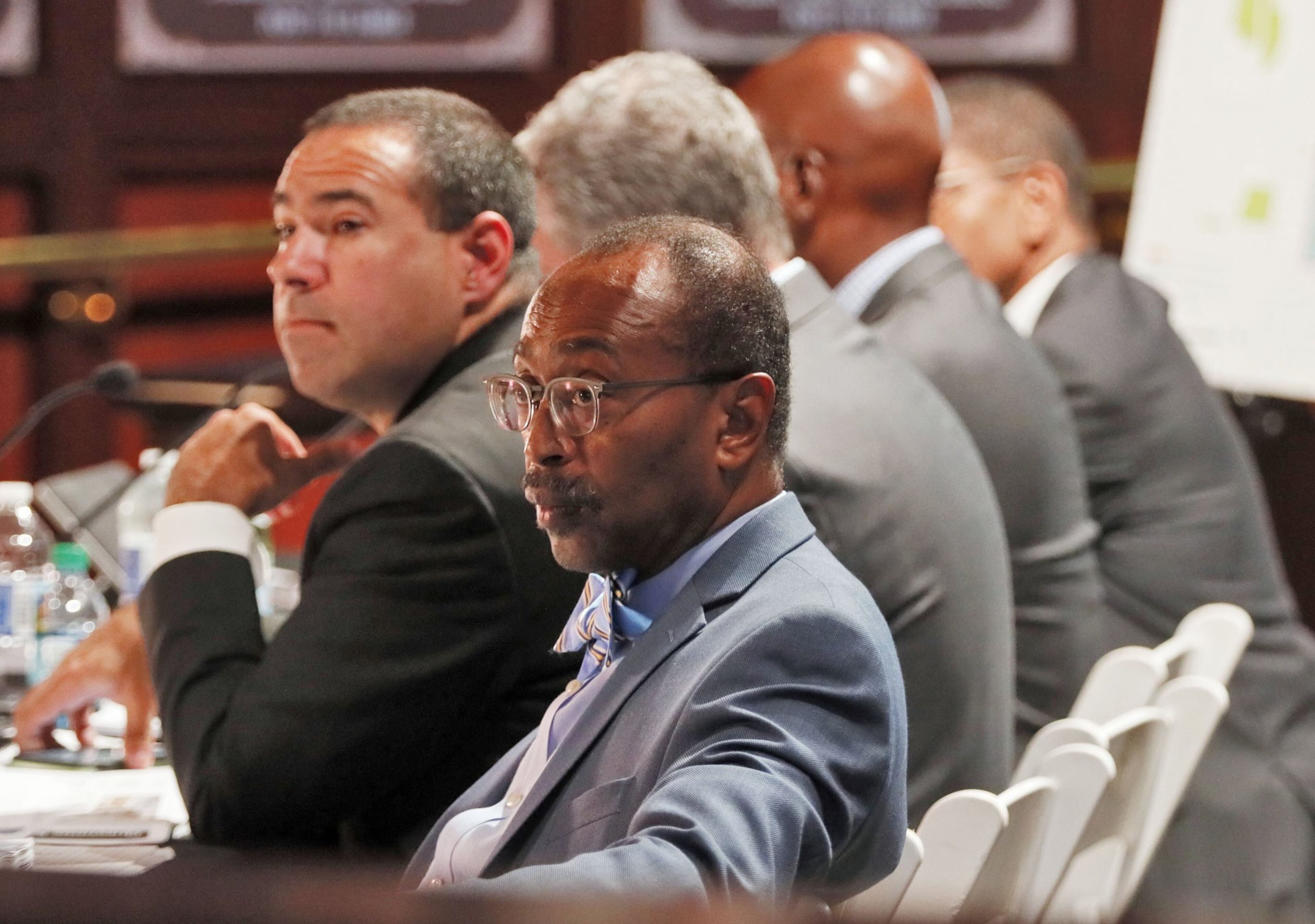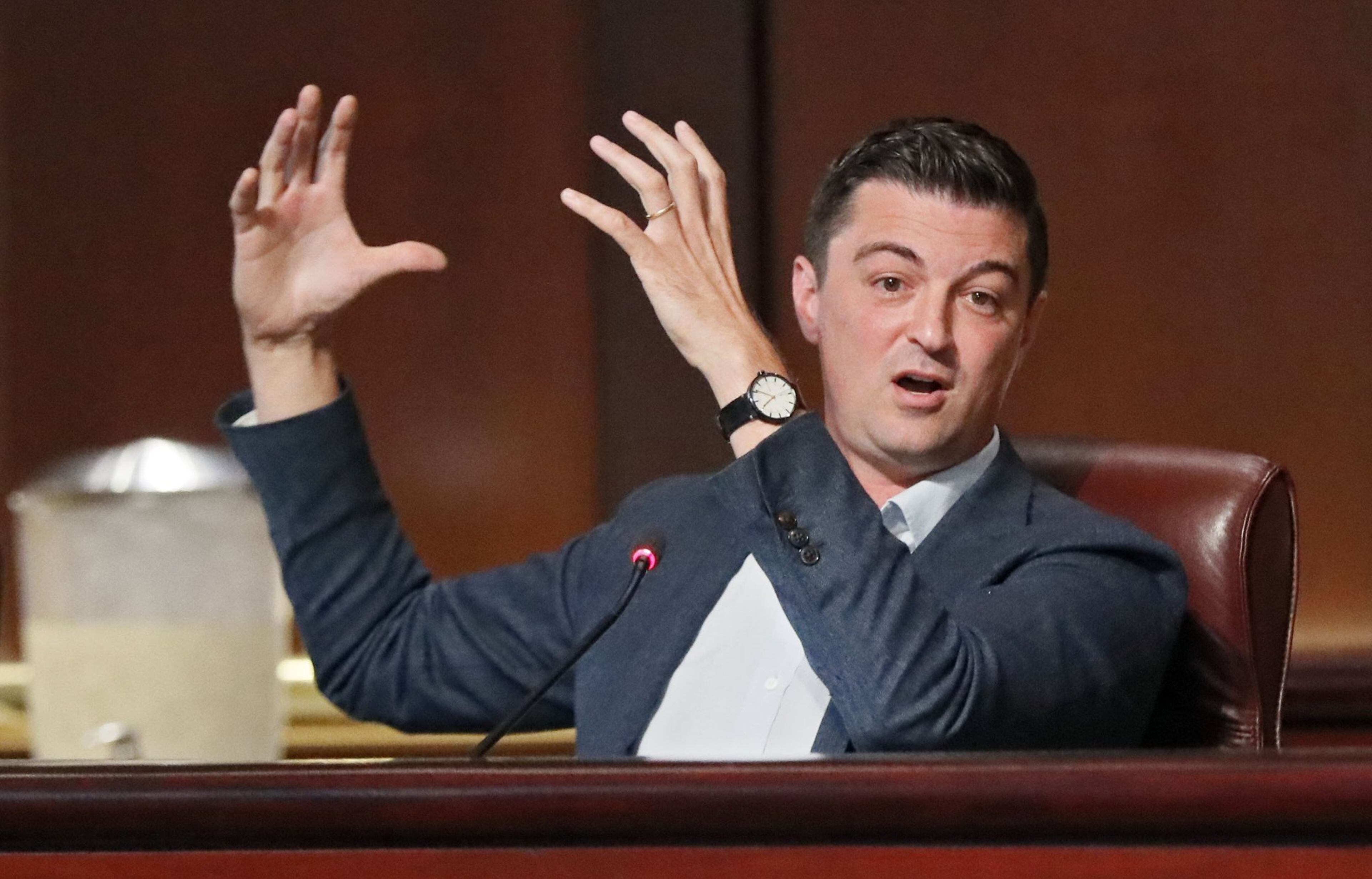Torpy at Large: Atlanta’s Gulch giveaway a real gulper
Recently, I wrote about the Georgia Aquarium getting a $7.5 million tax break from the city to build a large addition to house sharks.
I called it the Affordable Housing Program for Big, Scary Fish.
But you want scary? Forget the sharks and come to Atlanta's City Hall to watch the massive tax giveaway being heaped upon a Los Angeles company owned by the brother of the billionaire who owns the Atlanta Hawks, who earlier got his own $142.5 million deal to fix up their arena.

This past week, City Council members tried to wrap their minds around a 600-page document that spelled out in obtuse, legalese fashion how the firm, CIM Group, would get up to $1.75 billion in tax money (that’s with a “B”) to fill up downtown’s Gulch with all sorts of new development.
The developers would build $3.5 billion to $5 billion of cool stuff down in the Gulch, the 40 acres of railroad lines and weedy parking lots on the west side of downtown where Falcons fans like to drink beer.
That means, if Team CIM builds out its entire $5 billion dream of apartments, office towers and retail space, then taxpayers will have paid 35 percent of the bill. And CIM will own all of it, including most of the new streets.
Now, I get it. Building there will be expensive, and no one through the decades has taken the initiative to fill in the Gulch, even though it’s right there downtown. The developers will have to construct streets on stilts and build around active train lines, which means people in the apartments and offices should get used to some rumble in their lives.
The vote is being pushed by Mayor Keisha Lance Bottoms, who’s trying to play finisher to her predecessor, Kasim Reed, who started cooking up the deal back when he was Big Cheese.
Mayor KLB came to a City Council committee meeting on Tuesday to ask council members to move the deal along so the full council could vote on it. Council members, who are showing more independence (aka backbone) than they demonstrated under Hizzoner, demurred.
That independence might be because almost half the council members are new and don’t realize their role is to act like potted plants. Or it might be that Mayor KLB is operating in a world where federal investigators are still fumigating City Hall and there’s just not a lot of communal trust to be found.

On Thursday, a table full of lawyers and finance guys in suits explained the joys of giving $1.75 billion (again, with a “B”) to a private developer.
The biggest chunk would come from the state, which will postpone getting its share of sales tax raised on the property over the next 30 years. That would be an estimated $1 billion based on the 4 cents of state sales tax. Atlanta and other cities in Fulton County would give up a penny of local sales tax — or $250 million.
And then there would be a Tax Allocation District (TAD) on the property, meaning property taxes generated in the upcoming decades would go to building infrastructure there, not to funding schools or cops or fixing streets elsewhere.
The boosters argue this is not a giveaway because there is very little tax being raised on the property now.

“There’s nothing there today, so we’re not really giving anything away,” said lawyer Peter Andrews, one of the suits at the table. “There’s zero there now.”
The boosters said the project will give the city $28 million to build affordable housing (on top of a promise that up to 30 percent of the units built in the Gulch will be affordable). Also, they will throw in a new fire station and millions of dollars more to help train for jobs.
Everyone likes jobs, and the paperwork handed out by boosters said the plan would create “in excess of 18,500 construction jobs” spread out over the years as the project is built.
Sounds great. My brother raised five kids with a construction job.
But prodded by new Councilman Amir Farokhi, Andrews backed off from the exuberance listed on the handout, saying it would be more like 1,500 to 1,800 construction jobs each year.

“It feels like an inflated number,” Farokhi said. “That’s where we lose a little trust.”
Andrews responded that the project would add up to 35,000 permanent jobs.
“But that’s just a projection,” Farokhi countered. “Let’s say there’s a market crash in six years …”
Does anyone remember the big hole that sat in the middle of Buckhead a decade ago after the Great Recession?
The Gulch is said to be in the offing to house the zillion-dollar Amazon HQ2 headquarters, although the CIM folks say they are going forward with or without them.
Councilwoman Jennifer Ide asked about what incentives might be given to bringing companies or headquarters to that site, given that the city and state would already be locked in on the subsidies deal with CIM.
“It doesn’t make any sense to give tax abatements in TADs,” she said.
Hmmm. A tax abatement wrapped in a TAD and smothered with deductions and subsidies: Atlanta tax attorneys reading that sentence will no doubt be brought to a state of arousal.
No, there wouldn’t be a TAD and a tax abatement given on the same land, Ide was told.
They’d just have to dream up some other incentives. And I have full faith in our leaders that they’d do it.

This week, former Invest Atlanta board member Julian Bene told me the Gulch would pull away office space, retail stores and apartments that otherwise would be built elsewhere in the city, in places where they might bring in more taxes. In essence, the Gulch deal might cannibalize development from elsewhere.
“You’re going to have buildings built somewhere,” he said. “Are they going to be built somewhere taxable or somewhere not taxable?”
After I ran my shark story, Bene told me, “The Gulch subsidy is 266 times as outrageous as the aquarium’s.”
Actually, he was going on figures that the Gulch subsidy would be $2 billion. So, with the subsidy at $1.75 billion, the outrageousness factor is more like 233.
Gotta be precise here.


